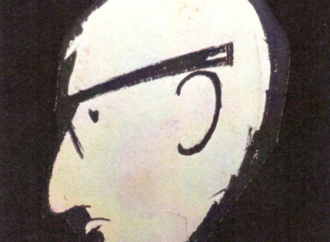This New Year, Canadians seem to have woken up to the unpleasant realization that serious trouble may be brewing on their Southern border. The relief provided by reassuring tones of President Biden and the soothing blandness of his foreign policy team has been replaced by warnings of a looming crisis in America with potentially dire implications for Canada. The prospect of political collapse, and even the spectre of American fascism, is suddenly a topic of public debate.
The crisis is real. But it should not come as a surprise. For many months, even years, numerous American political commentators – including prominent conservatives – have warned of the decline and potential collapse of the Republic. Thinking through the way this crisis (if it comes) is likely to unfold, the possible consequences for this country, and what – if anything – Canada can do about it, is vital. Overly dramatic reactions are unlikely to be helpful, now or in the future. A very clear-eyed realism will be essential if Canada is to navigate what might be some of the biggest challenges it has faced in more than half a century.
A very clear-eyed realism will be essential if Canada is to navigate what might be some of the biggest challenges it has faced in more than half a century.
The first thing to be clear about is the nature of the challenge. It is inevitable that the next decade will be amongst the most divisive in recent American history. If the worst predictions of a contested future election come true, the possibility of civil unrest and violence is very real. But unless the American military splits along partisan lines (in which case all bets are off), the crisis is unlikely to see civil war or hundreds of rows of jack-booted Proud Boys marching in front of the White House. A much more likely scenario is a restoration of order that, if dominated by the radical right, would see increasingly repressive security policies and a slow slide into democratic authoritarianism. The model is contemporary Hungary, not Weimar Germany. The playbook for this process has already been written in Budapest, and the American radical right has studied it carefully. Constitutional government would appear to remain in place, but it would function radically differently. Civil rights would be eroded, and political opposition gradually undermined. Executive power would be enlarged, traditional checks and balances weakened. America would not descend into fascism or civil war, but it would have fundamentally changed as a country.
This would create a much more complex set of challenges in Canadian-American relations than one of civil disorder in the US. Three consequences would likely follow. The main issue would be economic, where an American economic nationalism on steroids would make the complex challenges faced by Canada in the first Trump administration look easy. In military policy, such an American government would combine isolationism and belligerence. The isolationist element would further loosen the US’ commitment to NATO and promote uncompromising demands on European allies. The American Right is not particularly concerned about Russia. In fact, many see in Putin the kind of strong nationalist leader and hard-edged foreign policy they admire. NORAD and continental defence would remain in place, though Canadian economic sovereignty over parts of the North could become pressure points in our relationship. Conversely, the American Right is hawkish on China. Here, one could expect a confrontational approach seeking to secure spheres of influence (not human rights) and demands that allies support these policies or pay the price for not doing so.
The American Right is not particularly concerned about Russia. In fact, many see in Putin the kind of strong nationalist leader and hard-edged foreign policy they admire.
Even if the United States does not fracture, a possible ascent of the radical right to political power would still provide unique challenges for Canada. What might Canada do to prevent this dire situation from emerging? Here, the news is not good. Canada’s voice is unlikely to influence these domestically focused American controversies. More importantly, it is likely that injudicious public interventions could help bring about the opposite of what Canada would like to see happen. Few things unite and energize the American Right as powerfully as its opposition to global moralizing. Any such interventions need to ask whether attempts to nudge the situation in a positive direction might make it worse. Concerted action along these lines with “like-minded” nations such as the Europeans risks being even more counterproductive. Any form of public diplomacy must be carefully calibrated.
That Canadians are now thinking seriously about the troubling trajectories in US politics is long overdue. But we must do so with a sense of realism, not with a sense of shock or an exaggerated view of the virtues of our interventions.
Main Image: Photograph by Blink O’fanaye on Flickr (CC BY-NC 2.0)










